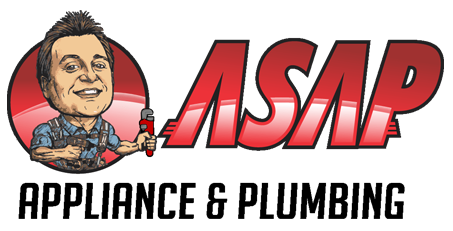Winter can be a pain for many reasons, especially when it comes to issues with your plumbing as they seemingly come out of nowhere. There are simple steps that you can take to avoid common problems that arise during the colder months. By preparing a winter routine, you’ll minimize your chances of an expensive call to your local plumber. Here are a few preventative measures you can take.
Winterize Your Plumbing
When fall comes to an end, and you find yourself counting down to the holidays, it’s time to begin winterizing your indoor and outdoor plumbing. First, walk the outside of your home to identify any cracks that have to be sealed. The cold wind that enters into your home can freeze your pipes, and it’s difficult to see where the breaks are once the snow has piled up. Next, ensure that your most vulnerable pipes are fitted with insulation sleeves, wrapping or slip-on foam pipe insulation. Be sure that any crawl spaces are adequately heated, as it will protect pipes against the cold. This is important as it’s out of sight so you won’t be able to see the signs once issues arise.
Quick tip: If you’re worried about a particular faucet, turn it on and let it drip. Just this tiny bit of movement through the pipe could help prevent the pipes from freezing.
Prevent Basement Flooding
Basement floods can be incredibly stressful as they can not only be costly but can damage sentimental items beyond repair. Before the first freeze, clear your eavestroughs and downspouts of anything that’s preventing drainage. Ensure there are no cracks within your foundation, floors and walls. Confirm with your local plumber that your backwater valve and a properly-sized sump pump and piping are all in working order.
Quick tip: If you do plan on storing important documents and valuables in your basement, keep them in water-resistant containers ideally off of the floor.
Make A Habit Of Cleaning Your Drains
Naturally, in the winter things will freeze, and slow down the process of proper drainage. This also includes the solidification of common liquids that are poured down drains. While you should never put oils, grease and food down your kitchen sink, you especially shouldn’t in the winter. As it may happen when you are hosting a holiday get together, be sure that you’re habitually cleaning your drains with necessary cleaner throughout the colder months to steer clear of clogged pipes.
Quick tip: Purchase a drain cover that will catch any large scraps. This small accessory will save you in the long run!
Routinely Check Your Hot Water Heater
Your hot water use will no doubt increase during the winter months, so checking up on your water heater is a definite necessity. You want to keep your heater as hot as possible so be sure that your insulating both the tank and pipes properly. Because the water coming into your heater is extra cold due to the declining outdoor temperatures, it has to work twice as hard. While it sounds counterintuitive, you should decrease your hot water use when the weather gets uncommonly cold outside.
Quick tip: Adjusting the thermostat by one to two degrees on your water heater can help as well and give it a chance not to overwork itself.
Avoid Trouble With Outdoor Water Lines
Fixing water lines can not only be troublesome; it can be incredibly expensive. No matter what type of waterline you have outside, you’ll need to winterize it. First, disconnect any hoses and drain for storage. Turn on all faucets to remove any water left. If the water continues to flow, check the valve to make sure it’s off. Leave the faucet handle turned on throughout the winter so any remaining water will eventually make its way through.
Quick tip: Winterizing outdoor faucets with an insulated cover will give you added protection from the cold and will help prevent any unnecessary surprises during the spring.
If you require immediate plumbing services and live in the Omaha area, consider ASAP Appliance & Plumbing Services. For more information, visit our website or call us at 402-706-9931 after-hours appointments are available.


